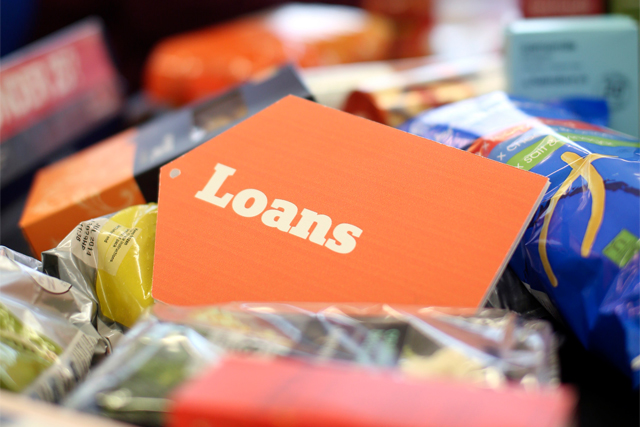
With Sainsbury PLC’s announcement this morning that it significantly outperformed the market, increased share to 16.8%, and that it is taking full ownership of Sainsbury’s Bank, it’s clear that it is well-positioned to take on the high street banking sector.
At the height of the financial crisis in 2008, banks and supermarkets in the UK occupied opposite ends of the spectrum in consumer minds. One sector was the symbol of hubris and misguided ambition. The other was a champion, stable and successful. With the trust and footprint they enjoyed, tapping into the disillusionment with banks was a no-brainer for supermarkets. However, fast forward five years - is the reputation gap between the two quite as wide as it once was?
Here are five tell-tale signs that supermarket brands could be heading in an all-too-familiar direction…
1. Products that no one understands: Much of the subprime crisis was attributed to financial products so complex that even the CEOs of the very institutions that traded in them couldn’t comprehend them.
One can’t help but draw a parallel there to the complexity of supply chains in supermarkets, driven by the demand for cheaper food and wider distribution. No one seems to be clear on how horsemeat is present in burgers. Even more terrifying is that food regulations are so loop-holed, convoluted and broken, that it’s become part of the problem. We mightn’t have long to wait before a bigger crisis changes the landscape of the food industry.
2. Faceless experiences: Across the UK, supermarkets are using more and more self-service checkout tills, which have consumers and unions up in arms. It’s akin to the backlash against overseas call centres and impenetrable IVRs.
Supermarkets are becoming less intimate with their customers – usually you only see the staff when something isn’t working. Banks know only too well that in a world where human interaction only occurs when things go wrong, it simply reinforces the negativity of the brand experience.
3. Questionable forays: Not many have forgotten the ill-fated RBS acquisition of ABN Amro that cost the bank £20 billion and constituted the vast chunk of the £28 Billion loss on the 2009 balance sheet. Imagine if a bank today launched a venture like Tesco’s Fresh & Easy in the US and ended up losing £1.2 billion in the process. Few financial institutions would today risk a mistake of that magnitude. Is this just a one-off, or an augury of future dynamics?
4. Securing personal information: Supermarkets thrive on customer information. Painstakingly mined and analysed, it provides remarkable insights into what, when and how people buy household goods. Consider then the power of that information when combined with data around financial transactions. Banks already struggle with ways to secure private information. How quickly will the paranoia set in with supermarkets about the misuse and loss of personal data? And would people really like their supermarket as much if they started issuing those frustrating fobs to access accounts?
5. A misuse of trust: Not so long ago, the bank manager was a trusted friend - he or she was the face of a sector whose purpose was to safeguard your earnings and provide the credit needed for businesses to grow and people to achieve their goals. Now (at least in marketing) trust is the holy grail that no one can seem to locate. In the aftermath of the financial crisis, several banks sought to remind people of their fundamental purpose because no one really remembered why they existed. Supermarkets enjoy a huge degree of consumer trust today – and it’s theirs’ to lose. As banks know only too well, that’s easy to do.
While banking is now officially a vilified category – joining the ranks previously reserved for big oil, pharma and tobacco, it is slowly settling into recovery mode. Even RBS announced return to profitability earlier this month, and the era of taxpayer-funded financial institutions seems at a near end. As brands like Sainsbury, Tesco, and M&S seek to leverage their trust and footprint in banking, they can’t afford to be complacent. Because they may yet turn out to be more like banks than they think.


.jpg)


.jpg)